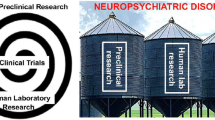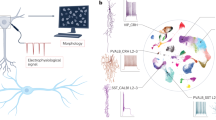Abstract
The emergence of new molecular targets, together with the development of new approaches to neuropsychiatric diseases, involving psychedelics as well as gene and cell therapies, are creating the need to improve the efficiency of mechanistic and/or efficacy clinical trials. This review article will discuss a number of issues that have hampered our ability to detect therapeutic signals, from excessive placebo/sham response rates to the imprecision of diagnostic and outcome assessments. In addition to reviewing the limitations of current efficacy and mechanistic neuropsychiatric clinical trials, this review presents some of the methodological approaches that may improve the overall performance of our neuropsychiatric trials, including the adoption of novel study designs such as the sequential parallel comparison design and independent confirmation of the appropriateness of subjects’ enrollment. In addition, this review will discuss several designs that make mechanistic clinical trials more precise.
This is a preview of subscription content, access via your institution
Access options
Subscribe to this journal
Receive 13 print issues and online access
$259.00 per year
only $19.92 per issue
Buy this article
- Purchase on Springer Link
- Instant access to full article PDF
Prices may be subject to local taxes which are calculated during checkout

Similar content being viewed by others
References
Wisniewski SR, Rush AJ, Nierenberg AA, Gaynes BN, Warden D, Luther JF, et al. Can phase III trial results of antidepressant medications be generalized to clinical practice? A STAR*D report. Am J Psychiatry. 2009;166:599–607. https://doi.org/10.1176/appi.ajp.2008.08071027.
Zimmerman M, Clark HL, Multach MD, Walsh E, Rosenstein LK, Gazarian D. Symptom severity and the generalizability of antidepressant efficacy trials: changes during the past 20 years. J Clin Psychopharmacol. 2009;36:153–6. https://doi.org/10.1097/JCP.0000000000000466.
Mundt JC, Greist JH, Jefferson JW, Katzelnick DJ, DeBrota DJ, Chappell PB, et al. Is it easier to find what you are looking for if you think you know what it looks like? J Clin Psychopharmacol. 2007;27:121–5. https://doi.org/10.1097/JCP.0b013e3180387820.
Tuttle AH, Tohyama S, Ramsay T, Kimmelman J, Schweinhardt P, Bennett GJ, et al. Increasing placebo responses over time in U.S. clinical trials of neuropathic pain. Pain. 2015;156:2616–26. https://doi.org/10.1097/j.pain.0000000000000333.
Dunlop BW, Thase ME, Wun CC, Fayyad R, Guico-Pabia CJ, Musgnung J, et al. A meta-analysis of factors impacting detection of antidepressant efficacy in clinical trials: the importance of academic sites. Neuropsychopharmacology. 2012;37:2830–6. https://doi.org/10.1038/npp.2012.153.
Dotson S, Mischoulon D, Lee H, Fava M. Rising placebo response rates threaten the validity of antipsychotic meta-analyses. Ann Clin Psychiatry. 2019;31:249–59.
Leucht S, Arbter D, Engel RR, Kissling W, Davis JM. How effective are second-generation antipsychotic drugs? A meta-analysis of placebo-controlled trials. Mol Psychiatry. 2009;14:429–47. https://doi.org/10.1038/sj.mp.4002136.
Fava M, Evins AE, Dorer DJ, Schoenfeld DA. The problem of the placebo response in clinical trials for psychiatric disorders: culprits, possible remedies, and a novel study design approach. Psychother Psychosom. 2003;72:115–27. https://doi.org/10.1159/000069738.
Papakostas GI, Fava M. Does the probability of receiving placebo influence clinical trial outcome? A meta-regression of double-blind, randomized clinical trials in MDD. Eur Neuropsychopharmacol. 2009;19:34–40. https://doi.org/10.1016/j.euroneuro.2008.08.009.
Fava M. Implications of a biosignature study of the placebo response in major depressive disorder. JAMA Psychiatry. 2015;72:1073–4. https://doi.org/10.1001/jamapsychiatry.2015.1727.
Walsh BT, Seidman SN, Sysko R, Gould M. Placebo response in studies of major depression: variable, substantial and growing. JAMA. 2002;287:1840–7.
Iovieno N, Papakostas GI. Correlation between different levels of placebo response rate and clinical trial outcome in major depressive disorder: a meta-analysis. J Clin Psychiatry. 2012;73:1300–6. https://doi.org/10.4088/JCP.11r07485.
Targum SD, Pollack MH, Fava M. Redefining affective disorders: relevance for drug development. CNS Neurosci Ther. 2008;14:2–9. https://doi.org/10.1111/j.1527-3458.2008.00038.x.
Freeman MP, Pooley J, Flynn MJ, Baer L, Mischoulon D, Mou D, et al. Guarding the gate: remote structured assessments to enhance enrollment precision in depression trials. J Clin Psychopharmacol. 2017;37:176–81. https://doi.org/10.1097/JCP.0000000000000669.
Kobak KA, Leuchter A, DeBrota D, Engelhardt N, Williams JB, Cook IA, et al. Site versus centralized raters in a clinical depression trial: impact on patient selection and placebo response. J Clin Psychopharmacol. 2010;30:193–7. https://doi.org/10.1097/JCP.0b013e3181d20912.
Targum SD, Wedel PC, Robinson J, Daniel DG, Busner J, Bleicher LS, et al. A comparative analysis between site-based and centralized ratings and patient self-ratings in a clinical trial of Major Depressive Disorder. J Psychiatr Res. 2013;47:944–54. https://doi.org/10.1016/j.jpsychires.2013.02.016.
Ratti E, Bettica P, Alexander R, Archer G, Carpenter D, Evoniuk G, et al. Full central neurokinin-1 receptor blockade is required for efficacy in depression: evidence from orvepitant clinical studies. J Psychopharmacol. 2013;27:424–34. https://doi.org/10.1177/0269881113480990.
Hamilton M. The assessment of anxiety states by rating. Br J Med Psychol. 1959;32:50–5.
Hamilton M. A rating scale for depression. J Neurol Neurosurg Psychiatry. 1960;23:56–62. https://doi.org/10.1136/jnnp.23.1.56.
Montgomery SA, Åsberg M. A new depression scale designed to be sensitive to change. Br J Psychiatry. 1979;134:382–9. https://doi.org/10.1192/bjp.134.4.382.
Bellamy N, Buchanan WW, Goldsmith CH, Campbell J, Stitt LW. Validation study of WOMAC: a health status instrument for measuring clinically important patient relevant outcomes to antirheumatic drug therapy in patients with osteoarthritis of the hip or knee. J Rheumatol. 1988;15:1833–40.
Pan Z, Park C, Brietzke E, Zuckerman H, Rong C, Mansur RB, et al. Cognitive impairment in major depressive disorder. CNS Spectr. 2019;24:22–9. https://doi.org/10.1017/S1092852918001207.
Fava M, Graves LM, Benazzi F, Scalia MJ, Iosifescu DV, Alpert JE, et al. A cross-sectional study of the prevalence of cognitive and physical symptoms during long-term antidepressant treatment. J Clin Psychiatry. 2006;67:1754–9. https://doi.org/10.4088/jcp.v67n1113.
Pedrelli P, Blais MA, Alpert JE, Shelton RC, Walker RS, Fava M. Reliability and validity of the Symptoms of Depression Questionnaire (SDQ). CNS Spectr. 2014;19:535–46. https://doi.org/10.1017/S1092852914000406.
Papakostas GI, Johe K, Hand H, Drouillard A, Russo P, Kay G, et al. A phase 2, double-blind, placebo-controlled study of NSI-189 phosphate, a neurogenic compound, among outpatients with major depressive disorder. Mol Psychiatry. 2020;25:1569–79. https://doi.org/10.1038/s41380-018-0334-8.
Bech P, Timmerby N, Martiny K, Lunde M, Soendergaard S. Psychometric evaluation of the Major Depression Inventory (MDI) as depression severity scale using the LEAD (Longitudinal Expert Assessment of All Data) as index of validity. BMC Psychiatry. 2015;15:190. https://doi.org/10.1186/s12888-015-0529-3.
Daniel DG, Busner J, McNamara C. Ongoing monitoring and feedback decreases error rates and improves internal consistency of PANSS ratings in an international clinical trial. Poster presentation at the 2010 Autumn International Society for CNS Clinical Trials and Methodology (ISCTM) Conference (2010), Baltimore, MD, October, 2010.
Trivedi MH, Rush AJ. Does a placebo run-in or a placebo treatment cell affect the efficacy of antidepressant medications? Neuropsychopharmacology. 1994;11:33–43.
Scott AJ, Sharpe L, Quinn V, Colagiuri B. Association of single-blind placebo run-in periods with the placebo response in randomized clinical trials of antidepressants: a systematic review and meta-analysis. JAMA Psychiatry. 2022;79:42–9. https://doi.org/10.1001/jamapsychiatry.2021.3204.
Faries DE, Heiligenstein JH, Tollefson GD, Potter WZ. The double-blind variable placebo lead-in period: results from two antidepressant clinical trials. J Clin Psychopharmacol. 2001;21:561–8. https://doi.org/10.1097/00004714-200112000-00004.
Ball SG, Ferguson MB, Martinez JM, Pangallo BA, Nery ES, Dellva MA, et al. Efficacy outcomes from 3 clinical trials of edivoxetine as adjunctive treatment for patients with major depressive disorder who are partial responders to selective serotonin reuptake inhibitor treatment. J Clin Psychiatry. 2016;77:635–42. https://doi.org/10.4088/JCP.14m09619.
Targum SD, Cameron BR, Ferreira L, MacDonald ID. An augmentation study of MSI-195 (S-adenosylmethionine) in major depressive disorder. J Psychiatr Res. 2018;107:86–96.
Zajecka JM, Stanford AD, Memisoglu A, Martin WF, Pathak S. Buprenorphine/samidorphan combination for the adjunctive treatment of major depressive disorder: results of a phase III clinical trial (FORWARD-3). Neuropsychiatr Dis Treat. 2019;15:795–808. https://doi.org/10.2147/NDT.S199245.
Fava M, Memisoglu A, Thase ME, Bodkin JA, Trivedi MH, de Somer M, et al. Opioid modulation with buprenorphine/samidorphan as adjunctive treatment for inadequate response to antidepressants: a randomized double-blind placebo-controlled trial. Am J Psychiatry. 2016;173:499–508. https://doi.org/10.1176/appi.ajp.2015.15070921.
Fava M, Thase ME, Trivedi MH, Ehrich E, Martin WF, Memisoglu A, et al. Opioid system modulation with buprenorphine/samidorphan combination for major depressive disorder: two randomized controlled studies. Mol Psychiatry. 2020;25:1580–91. https://doi.org/10.1038/s41380-018-0284-1.
Cummings JL, Lyketsos CG, Peskind ER, Porsteinsson AP, Mintzer JE, Scharre DW, et al. Effect of dextromethorphan-quinidine on agitation in patients with Alzheimer disease dementia: a randomized clinical trial. JAMA. 2015;314:1242–54. https://doi.org/10.1001/jama.2015.10214.
Ivanova A, Qaqish B, Schoenfeld D. Optimality, sample size and power calculations for the sequential parallel comparison design. Stat Med. 2011;30:2793–803.
Chen Y, Yang Y, Hung H, Wang S. Evaluation of performance of some enrichment designs dealing with high placebo response in psychiatric clinical trials. Contemp Clin Trials. 2011;32:592–604.
Silverman RK, Ivanova A, Fine J. Sequential parallel comparison design with binary and time-to-event outcomes. Stat Med. 2018;37:1454–66. https://doi.org/10.1002/sim.7635.
Tamura R, Huang X. An examination of the efficiency of the sequential parallel design in psychiatric clinical trials. Clin Trials. 2007;4:309–17.
Doros G, Pencina M, Rybin D, Meisner A, Fava M. A repeated measures model for analysis of continuous outcomes in sequential parallel comparison design studies. Stat Med. 2013;32:2767–89. https://doi.org/10.1002/sim.5728.
Fava M, Mischoulon D, Iosifescu D, Witte J, Pencina M, Flynn M, et al. A double-blind, placebo-controlled study of aripiprazole adjunctive to antidepressant therapy among depressed outpatients with inadequate response to prior antidepressant therapy (ADAPT-A Study). Psychother Psychosom. 2012;81:87–97. https://doi.org/10.1159/000332050.
Papakostas GI, Shelton RC, Zajecka JM, Etemad B, Rickels K, Clain A, et al. L-methylfolate as adjunctive therapy for SSRI-resistant major depression: results of two randomized, double-blind, parallel-sequential trials. Am J Psychiatry. 2012;169:1267–74. https://doi.org/10.1176/appi.ajp.2012.11071114.
Papakostas GI, Shelton RC, Smith J, Fava M. Augmentation of antidepressants with atypical antipsychotic medications for treatment-resistant major depressive disorder: a meta-analysis. J Clin Psychiatry. 2007;68:826–31. https://doi.org/10.4088/jcp.v68n0602.
Peciña M, Bohnert AS, Sikora M, Avery ET, Langenecker SA, Mickey BJ, et al. Association between placebo-activated neural systems and antidepressant responses: neurochemistry of placebo effects in major depression. JAMA Psychiatry. 2015;72:1087–94. https://doi.org/10.1001/jamapsychiatry.2015.1335.
Syvänen S, Meier SR, Roshanbin S, Xiong M, Faresjö R, Gustavsson T, et al. PET imaging in preclinical anti-Aβ drug development. Pharm Res. 2022;39:1481–96. https://doi.org/10.1007/s11095-022-03277-z.
Author information
Authors and Affiliations
Corresponding author
Ethics declarations
Competing interests
MF’s 3-year disclosures of competing interests—Research Support: AbbVie; Acadia Pharmaceuticals; Aditum Bio Management Company, LLC; Allergan, Alkermes, Inc.; Altimate Health Corporation; Alto Neuroscience, Inc.; Ancora Bio, Inc.; Angelini S.p.A; Aptinyx; Arbor Pharmaceuticals LLC; Avanir Pharmaceuticals Inc.; Axsome; Benckiser Pharmaceuticals, Inc.; BioClinica, Inc.; Biogen; BioHaven; BioShin Limited; Cambridge Science Corporation; Centrexion Therapeutics Corporation; Cerecor; Cybin IRL Limited; Damona Pharmaceuticals; EmbarkNeuro; Eliem Therapeutics LTD; Gate Neurosciences, Inc.; GenOmind, LLC; Gentelon, LLC; Gerbera Therapeutics, Inc.; Happify; Johnson & Johnson; Lundbeck Inc.; Marinus Pharmaceuticals; Medpace, Inc.; Methylation Sciences, Inc.; Millennium Pharmaceutics, Inc.; Minerva Neurosciences; Neuralstem; Neurocrine Biosciences, Inc.; NeuroRX Inc.; Novaremed; Novartis; Otsuka; Pfizer; Premiere Research International; Praxis Precision Medicines; Protagenic Therapeutics, Inc.; Relmada Therapeutics Inc.; Reckitt; Shenox Pharmaceuticals; Stanley Medical Research Institute (SMRI); Taisho; Takeda; University of Michigan; Vistagen; WinSanTor, Inc.; Xenon Pharmaceuticals, Inc.; National Institute of Drug Abuse (NIDA); National Institutes of Health (NIH); National Institute of Mental Health (NIMH); and PCORI. MF has not done any personal consulting. Any consulting he has done has been on behalf of Massachusetts General Hospital, except for Revival Therapeutics and Sensorium Therapeutics. Speaking/Publishing: lecture given at Global Medical Education, Inc. Mood Disorders Summit, November 2020. Stock/Other Financial Options: Equity Holdings: Compellis; Neuromity; Psy Therapeutics; Revival Therapeutics; Sensorium Therapeutics Royalty/patent, other income: patents for Sequential Parallel Comparison Design (SPCD) (US_7840419, US_7647235, US_7983936, US_8145504, US_8145505), all expired; patent application for a combination of Ketamine plus Scopolamine in Major Depressive Disorder (MDD), licensed by MGH to BioHaven. Patents for pharmacogenomics of Depression Treatment with Folate (US_9546401, US_9540691), licensed by MGH to Nestle. Copyright for the MGH Cognitive & Physical Functioning Questionnaire (CPFQ), Sexual Functioning Inventory (SFI), Antidepressant Treatment Response Questionnaire (ATRQ), Discontinuation-Emergent Signs & Symptoms (DESS), Symptoms of Depression Questionnaire (SDQ), and SAFER; Belvior; Lippincott, Williams & Wilkins; Wolters Kluwer; World Scientific Publishing Co. Pte. Ltd. All lifetime disclosures can be viewed online by navigating to: https://mghcme.org/maurizio-fava-bio-disclosure/.
Additional information
Publisher’s note Springer Nature remains neutral with regard to jurisdictional claims in published maps and institutional affiliations.
Rights and permissions
Springer Nature or its licensor (e.g. a society or other partner) holds exclusive rights to this article under a publishing agreement with the author(s) or other rightsholder(s); author self-archiving of the accepted manuscript version of this article is solely governed by the terms of such publishing agreement and applicable law.
About this article
Cite this article
Fava, M. How should we design future mechanistic and/or efficacy clinical trials?. Neuropsychopharmacol. 49, 197–204 (2024). https://doi.org/10.1038/s41386-023-01600-9
Received:
Revised:
Accepted:
Published:
Issue Date:
DOI: https://doi.org/10.1038/s41386-023-01600-9



